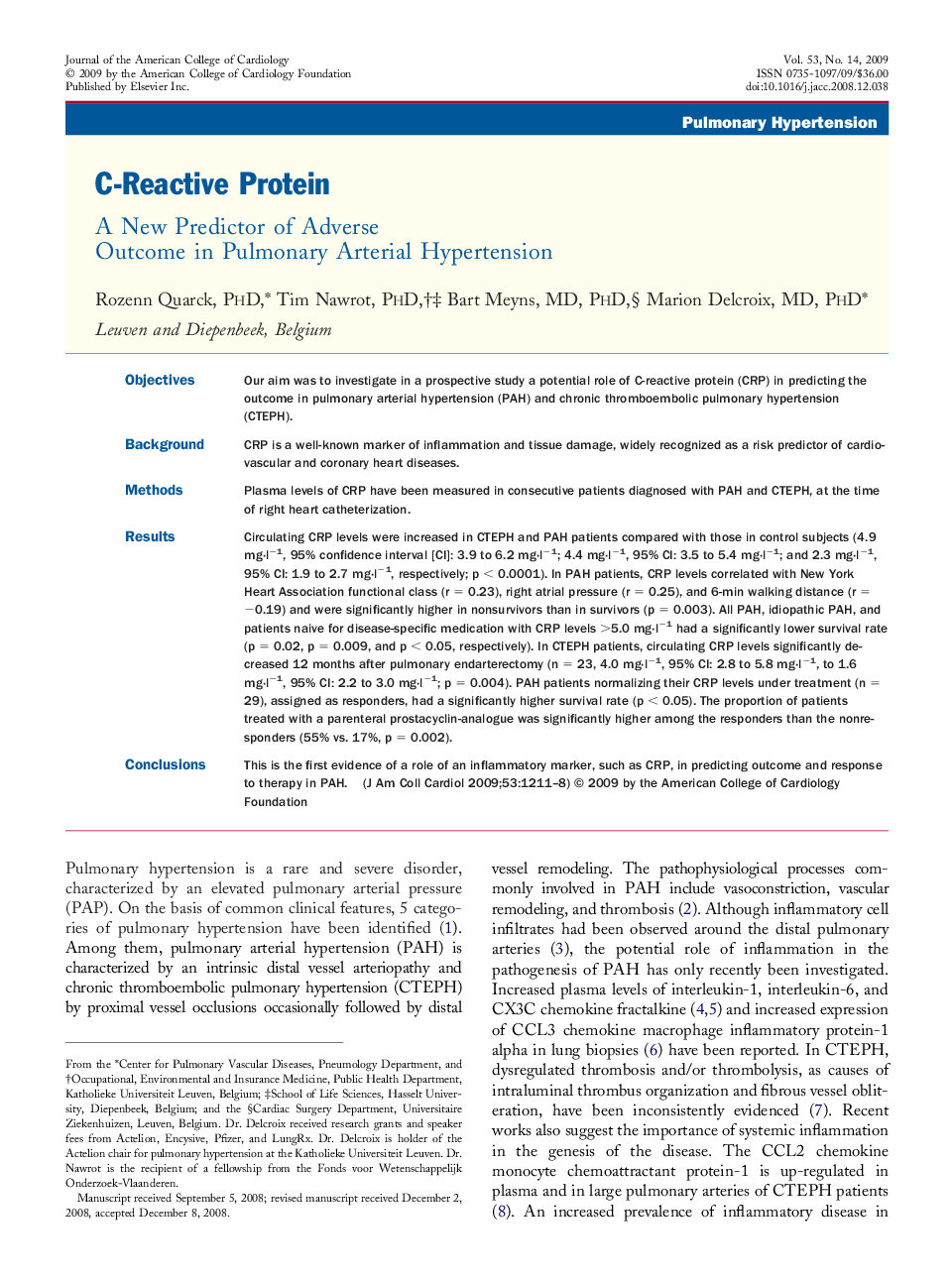| Article ID | Journal | Published Year | Pages | File Type |
|---|---|---|---|---|
| 2949496 | Journal of the American College of Cardiology | 2009 | 8 Pages |
ObjectivesOur aim was to investigate in a prospective study a potential role of C-reactive protein (CRP) in predicting the outcome in pulmonary arterial hypertension (PAH) and chronic thromboembolic pulmonary hypertension (CTEPH).BackgroundCRP is a well-known marker of inflammation and tissue damage, widely recognized as a risk predictor of cardiovascular and coronary heart diseases.MethodsPlasma levels of CRP have been measured in consecutive patients diagnosed with PAH and CTEPH, at the time of right heart catheterization.ResultsCirculating CRP levels were increased in CTEPH and PAH patients compared with those in control subjects (4.9 mg·l−1, 95% confidence interval [CI]: 3.9 to 6.2 mg·l−1; 4.4 mg·l−1, 95% CI: 3.5 to 5.4 mg·l−1; and 2.3 mg·l−1, 95% CI: 1.9 to 2.7 mg·l−1, respectively; p < 0.0001). In PAH patients, CRP levels correlated with New York Heart Association functional class (r = 0.23), right atrial pressure (r = 0.25), and 6-min walking distance (r = −0.19) and were significantly higher in nonsurvivors than in survivors (p = 0.003). All PAH, idiopathic PAH, and patients naive for disease-specific medication with CRP levels >5.0 mg·l−1had a significantly lower survival rate (p = 0.02, p = 0.009, and p < 0.05, respectively). In CTEPH patients, circulating CRP levels significantly decreased 12 months after pulmonary endarterectomy (n = 23, 4.0 mg·l−1, 95% CI: 2.8 to 5.8 mg·l−1, to 1.6 mg·l−1, 95% CI: 2.2 to 3.0 mg·l−1; p = 0.004). PAH patients normalizing their CRP levels under treatment (n = 29), assigned as responders, had a significantly higher survival rate (p < 0.05). The proportion of patients treated with a parenteral prostacyclin-analogue was significantly higher among the responders than the nonresponders (55% vs. 17%, p = 0.002).ConclusionsThis is the first evidence of a role of an inflammatory marker, such as CRP, in predicting outcome and response to therapy in PAH.
